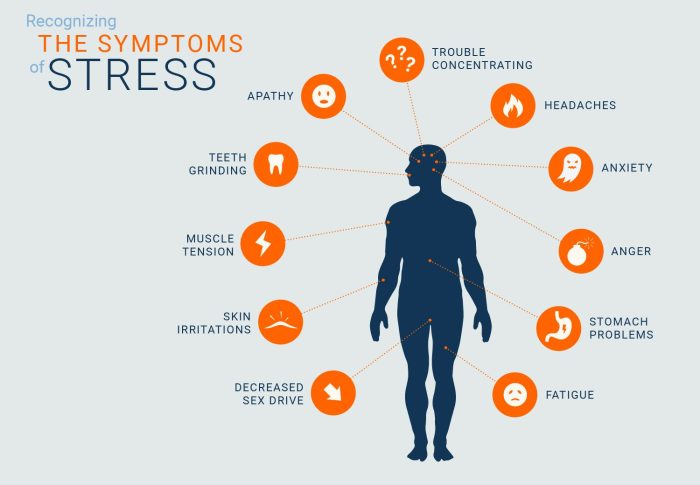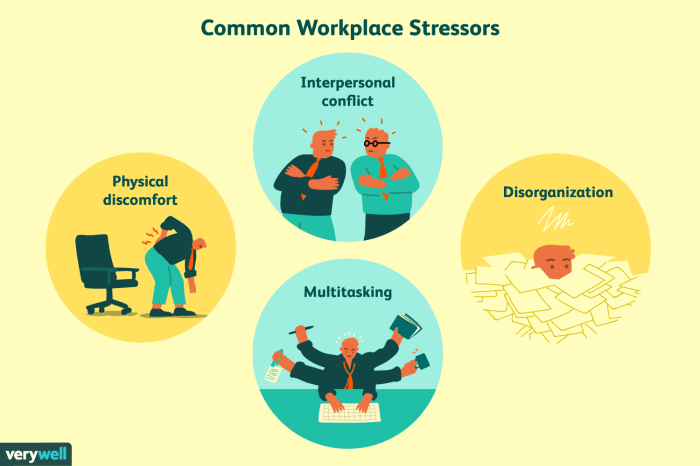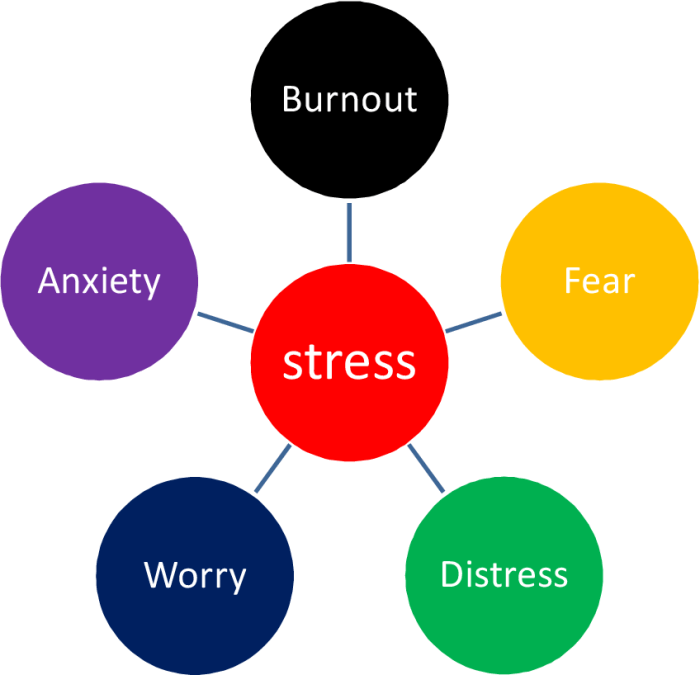Introducing ati stress causes effects and management, this extensive guide delves into the intricacies of stress, its multifaceted origins, and effective strategies for managing its impact. Embark on a journey of understanding, exploring the physiological and psychological consequences of stress while uncovering practical techniques for cultivating resilience and well-being.
Stress, a pervasive force in modern life, manifests in various forms, each carrying its unique set of triggers and consequences. This guide unravels the complexities of stress, empowering individuals with the knowledge and tools to navigate its challenges effectively.
1. Stress
Definition and Causes

Stress is a natural response to demands and challenges in life. It can be triggered by various stressors, both positive (e.g., getting married) and negative (e.g., losing a job).
Common Stressors
- Work-related pressures
- Relationship conflicts
- Financial worries
- Major life changes
- Health problems
Physical, Psychological, and Emotional Triggers, Ati stress causes effects and management
Stress can be triggered by physical factors (e.g., noise, pain), psychological factors (e.g., negative thoughts, anxiety), and emotional factors (e.g., anger, sadness).
2. Effects of Stress on Health
Physical Health Consequences
- Cardiovascular problems (e.g., high blood pressure, heart disease)
- Digestive problems (e.g., ulcers, irritable bowel syndrome)
- Weakened immune system
Mental Health Consequences
- Anxiety disorders
- Depression
- Insomnia
Behavioral and Decision-Making Effects
Stress can lead to impulsive behavior, impaired judgment, and difficulty concentrating.
3. Managing Stress Effectively: Ati Stress Causes Effects And Management
Practical Techniques
- Relaxation exercises (e.g., deep breathing, meditation)
- Mindfulness practices (e.g., yoga, tai chi)
- Exercise
- Healthy sleep habits
- Balanced diet
Coping Strategies
Developing effective coping strategies for specific stress-inducing situations is crucial.
4. Cognitive and Behavioral Approaches to Stress Management

Cognitive-Behavioral Therapy (CBT)
CBT helps individuals identify and change negative thought patterns and behaviors that contribute to stress.
Positive Self-Talk and Reframing
Positive self-talk and reframing negative thoughts can reduce stress and promote resilience.
5. Lifestyle Modifications for Stress Reduction

Incorporating Stress-Reducing Activities
Regularly engaging in stress-reducing activities is essential for overall well-being.
| Activity | Benefits |
|---|---|
| Yoga | Reduces stress, improves flexibility, and promotes relaxation |
| Meditation | Calms the mind, reduces anxiety, and improves focus |
| Spending Time in Nature | Reduces stress, improves mood, and boosts creativity |
Setting Boundaries and Self-Care
Setting boundaries and prioritizing self-care are essential for managing stress effectively.
Clarifying Questions
What are the most common stressors in life?
Common stressors include work pressure, financial concerns, relationship issues, health problems, and major life changes.
How does stress affect physical health?
Chronic stress can contribute to cardiovascular issues, digestive problems, headaches, and a weakened immune system.
What are some effective stress management techniques?
Effective stress management techniques include relaxation exercises, mindfulness practices, exercise, healthy sleep habits, and a balanced diet.